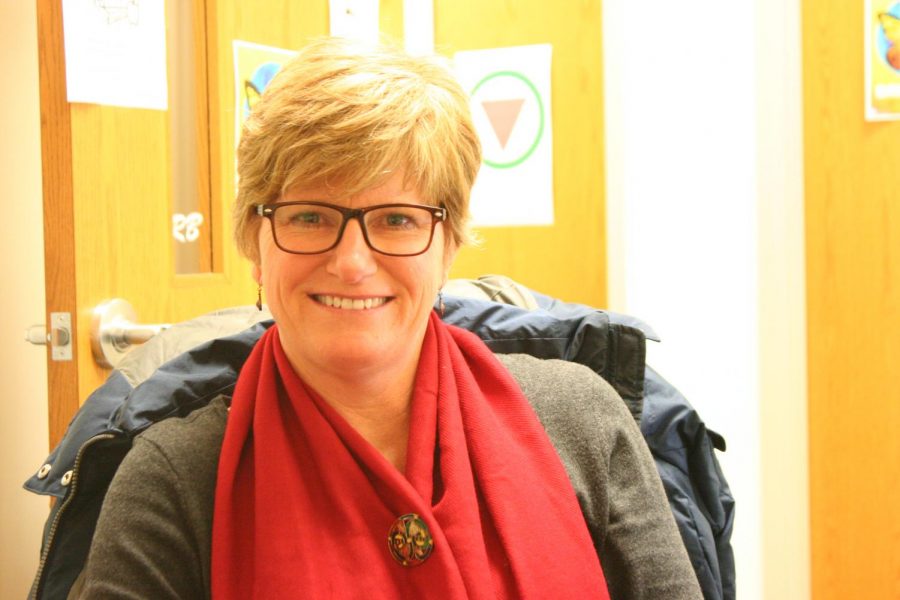Counselor, college, and applications, Oh My!
December 11, 2017
Starting freshman year of high school, college is something that approaches at an increasingly fast rate. Although students may be feeling stressed with all that college applications entail, there are experts ready to help. Counselors know all that’s involved in applying for a school. The college planning experience starts in August when the counselors host a presentation for students and parents to attend.
“We do a group meeting with all of our seniors to talk about the applications process, what they need to do to send out their transcripts and ACT/SAT scores,things like that and letters of recommendation,” said Renee Thomas, an RB counselor.
As October starts, FAFSA Applications become available. FAFSA is the Free Application for Federal Student Aid, and will help with scholarships and the financial aspect of college. When beginning the college search process, counselor James Franko suggests that a good way to narrow schools is to look at financial aid and costs in addition to majors they offer.
“[I would say] what might you want to study, what do finances look like for the family, is a four year college a financial possibility, what are some things you can keep in mind with regard to finances and college, is a two year college possibility, you could be open to that, geographically do you want to be close to home, far from home…” said Franko.
Another way that counselors, like Thomas and Maggie Leiteritz, help students narrow down, or even begin, their school search is by using a program called Scattergram. Scattergram will show a student’s ACT and SAT scores along with grade point average, and whether or not they were accepted, waitlisted, or denied admittance into a school.
“On Naviance there is a scattergram so basically you can pick any college, mainly it’s the students who have applied from RB to different colleges, we have all the data from those students who apply and you can compare your personal ACT or SAT score against students who have applied from our school and you can kind of see what the average ACT or SAT and the average GPA is and you can plot yourself on a chart,” said Leiteritz.
Students must submit their transcripts, which have to be requested ten school days prior, letters of recommendation from teachers and counselors, ACT and SAT scores, and sometimes an additional essay for applications.
“You learn the requirements [for applications] as you go along, so I’m guessing that every counselor can pretty much spout out, you know 100 or so [schools] that they know off the top of their head the requirements that are needed and then we use Naviance to look up what the requirements are if it’s a school that maybe students our students don’t apply to that often but I would say most of the Midwest schools all of our surrounding states and certainly the Illinois schools we can rattle off by heart what the requirements are,” said Leiteritz.
Early applications are an important part in applying for college and these deadlines occur in November, normally on the first and 15th. Around 30 percent of students will meet the early application deadlines. These deadlines mean that applications have to be complete by November containing all the parts for the application.
“Early action, which is basically like you’re just applying early, you usually find out before winter break, so that’s always a good idea. The standard rule is yes, if you can apply by the early action deadline definitely do it. It probably increases your chances of getting in and also increase your chances for scholarship money,” said Franko.
Some schools have individual applications that are required for submission, however around 800 schools subscribe to what is called the Common Application. This application is one that can be completed and sent to multiple schools to save students money and time. Although, even though it saves time for students there are many parts that counselors have to put together before they can be sent out.
“It ends up saving the students some time by doing a Common app if they have multiple schools on it. But on our end the Common App is definitely more time-consuming because it requires more documents to send rather than, you know, just sending a transcript. Common App definitely has a lot more steps to it,” said Thomas.
Counselors at RB each work with over 80 seniors on their college application and selection process. They know the ins and outs of applying and will reach out to a specific school’s representative if needed. Each counselor wants what is best for each student and is ready to help whenever they can.
“We do Camp College every summer. It’s usually a week after school lets out and it’s like two and a half hours a day for 5 days,” said Franko. “They can have sort of like a little summer school workshop kind of thing. The good thing about that is they would make a lot of progress on a personal statement that they might have to do.”




vivian pina • Dec 11, 2017 at 10:01 am
this is rad.